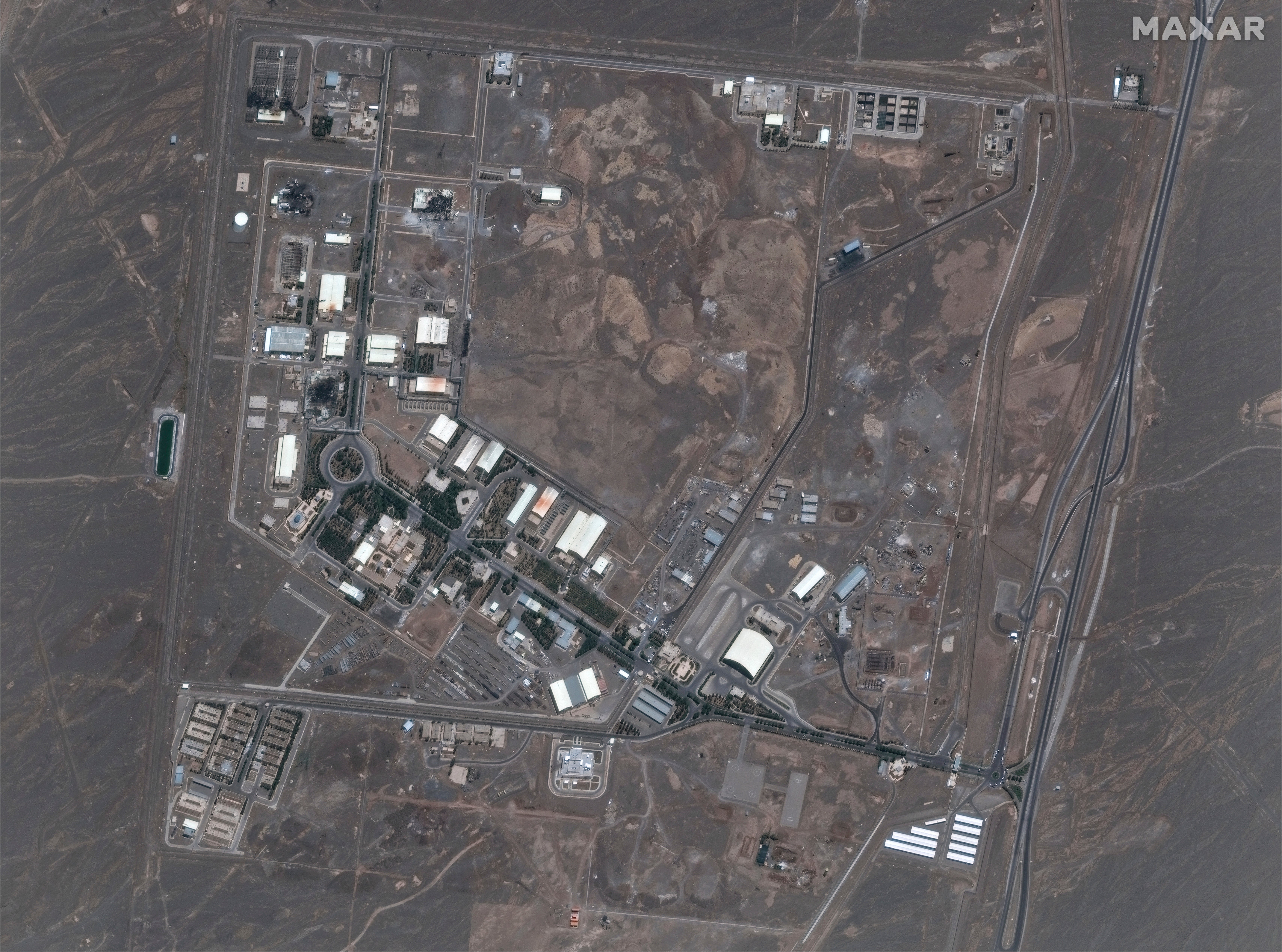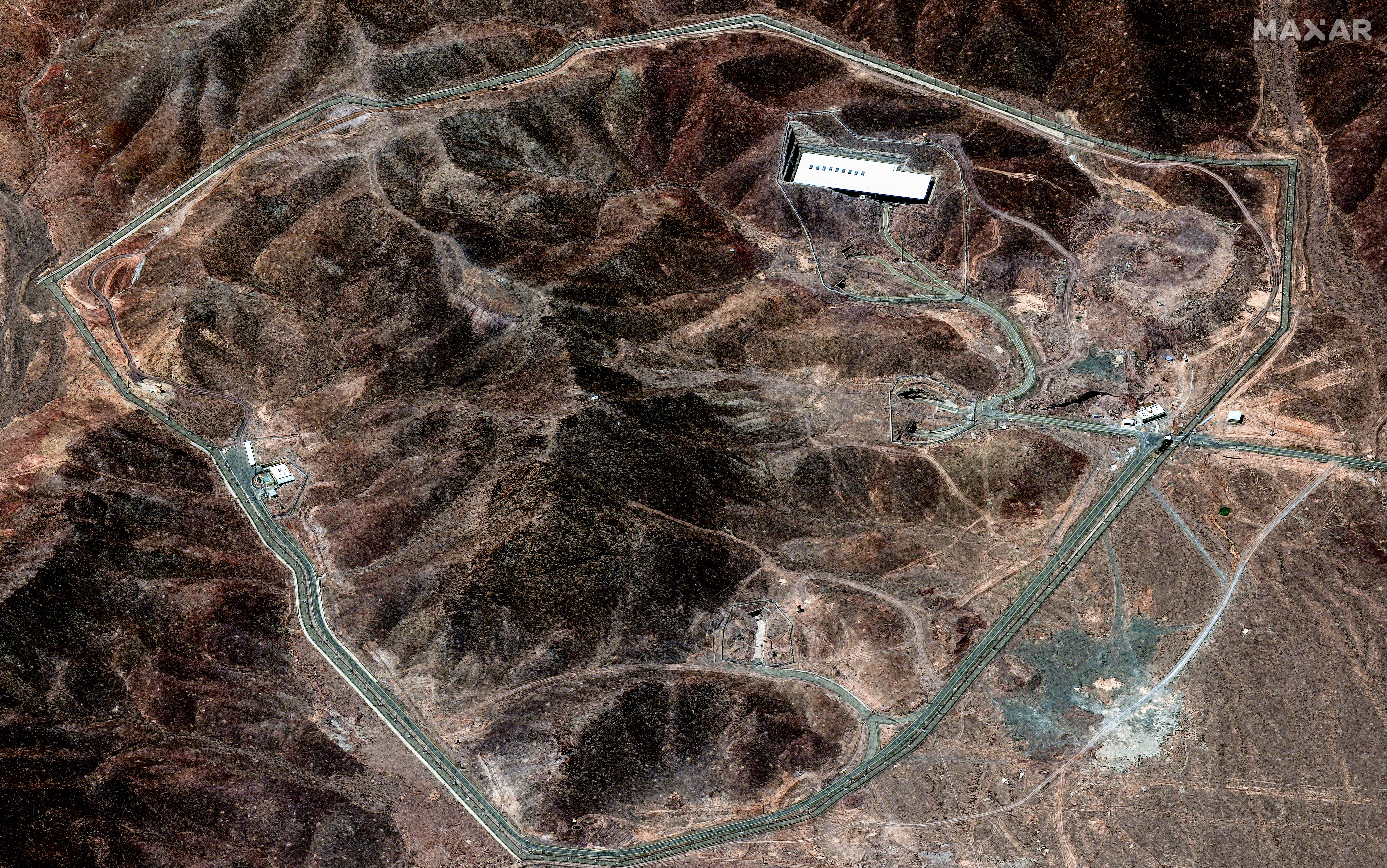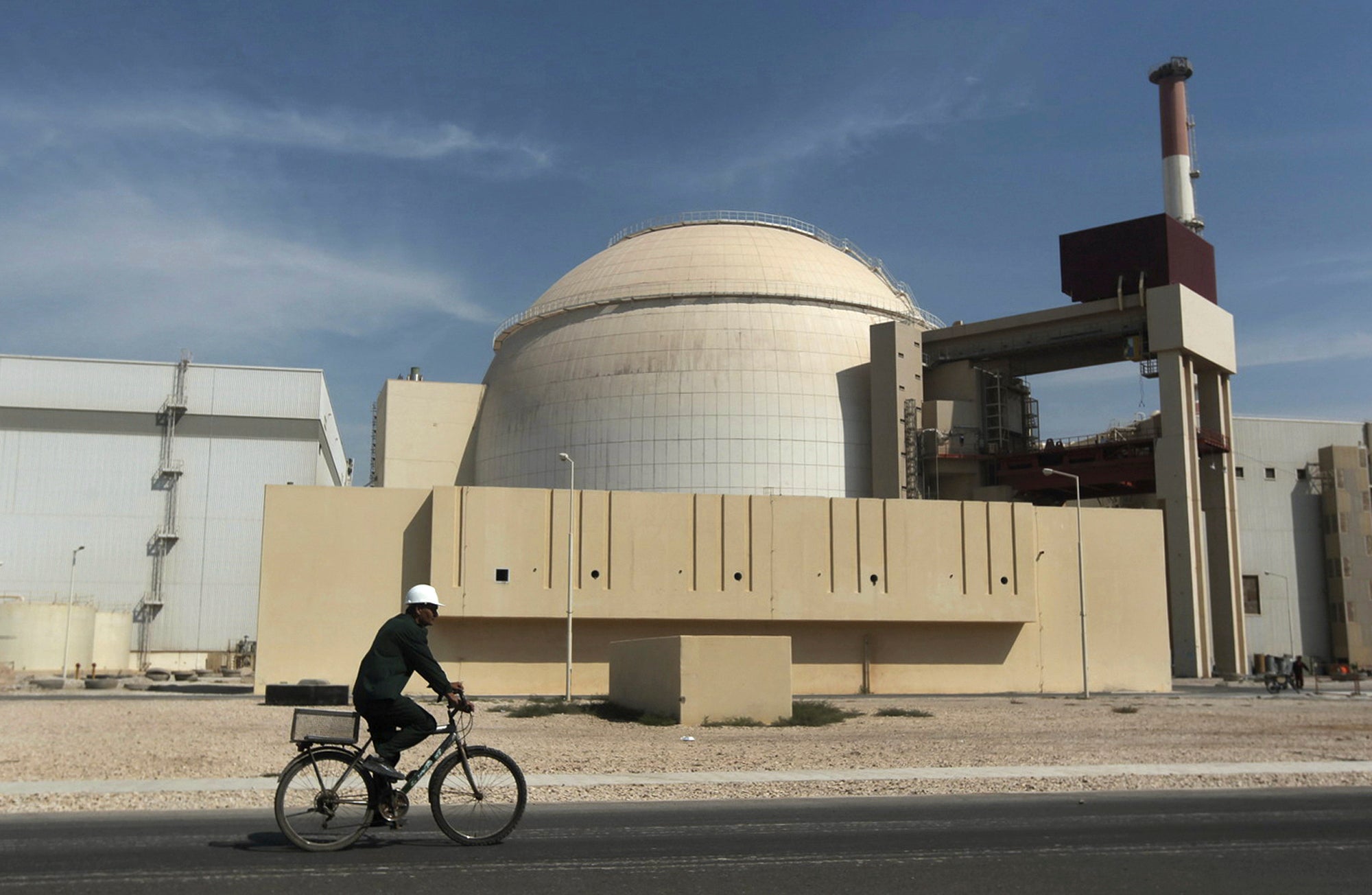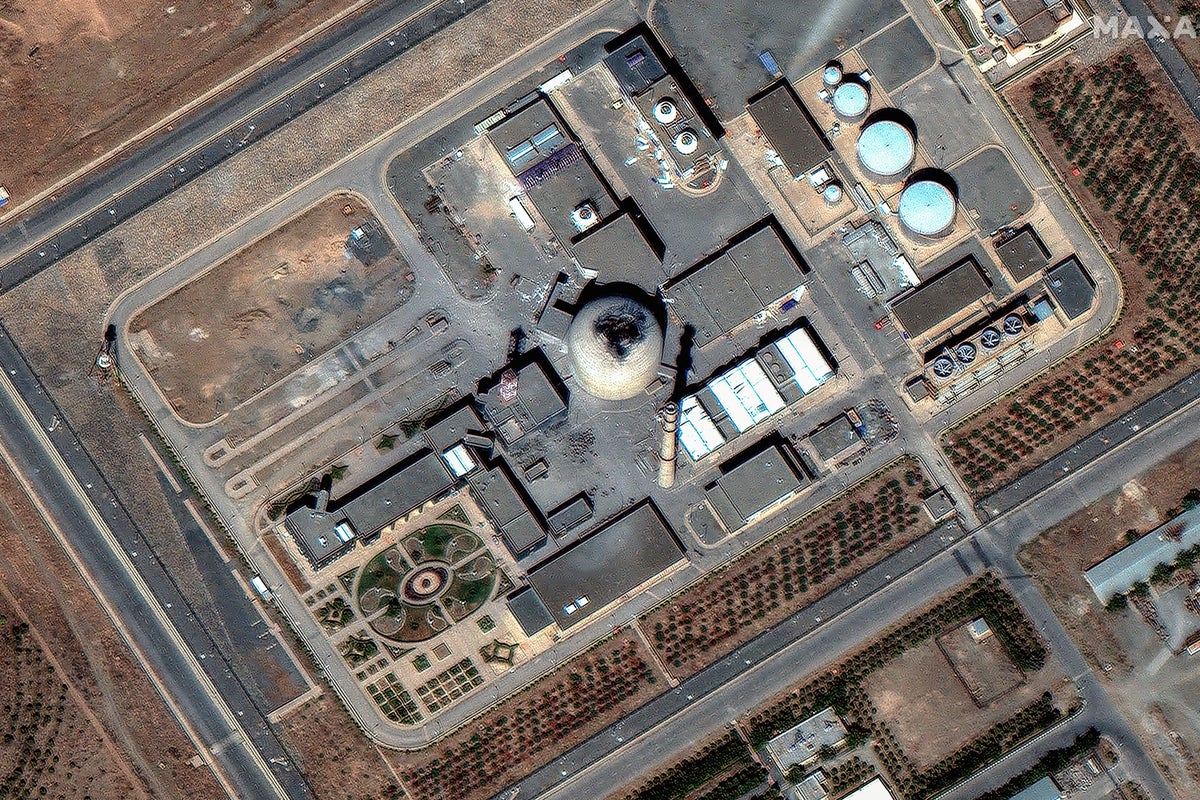Experts say Israel’s current strikes on Iran’s nuclear installations so far pose only limited risks of contamination, but warn any attack on the country’s nuclear power station at Bushehr could cause a nuclear disaster.
Fears of a nuclear catastrophe rippled through the Gulf on Thursday after the Israeli military mistakenly announced a strike in Bushehr, home to Iran’s only nuclear power station, only to say later that the announcement was a mistake.
Israel has said it is determined to destroy Iran’s nuclear capabilities in its military campaign, but that it also wants to avert any nuclear disaster in a region that is home to tens of millions of people and vital for global oil production.
What has Israel hit so far?
Israel has announced attacks on nuclear sites in Natanz, Isfahan, Arak and Tehran itself. Israel says it aims to stop Iran from building an atom bomb. Iran denies ever seeking one.
The international nuclear watchdog IAEA has reported damage to the uranium enrichment plant at Natanz, to the nuclear complex at Isfahan, including the Uranium Conversion Facility, and to centrifuge production facilities in Karaj and Tehran.
Israel has also attacked Arak, also known as Khondab.

The IAEA said Israeli military strikes hit the Khondab Heavy Water Research Reactor, which was under construction and had not begun operating, and damaged the nearby plant that makes heavy water. The IAEA said that it was not operational and contained no nuclear material, so there were no radiological effects.
In an update of its assessment on Friday, the IAEA said key buildings at the site were damaged. Heavy-water reactors can be used to produce plutonium, which, like enriched uranium, can be used to make an atom bomb.
What risks do these strikes pose?
Peter Bryant, a professor at the University of Liverpool in England who specialises in radiation protection science and nuclear energy policy, said he is not too concerned about fallout risks from the strikes so far.
He noted that the Arak site was not operational while the Natanz facility was underground, and no release of radiation was reported.
“The issue is controlling what has happened inside that facility, but nuclear facilities are designed for that,” he said. “Uranium is only dangerous if it gets physically inhaled or ingested or gets into the body at low enrichments,” he said.
Darya Dolzikova, a senior research fellow at London think tank RUSI, said attacks on facilities at the front end of the nuclear fuel cycle – the stages where uranium is prepared for use in a reactor – pose primarily chemical, not radiological risks.

At enrichment facilities, UF6, or uranium hexafluoride, is the concern. “When UF6 interacts with water vapour in the air, it produces harmful chemicals,” she said.
The extent to which any material is dispersed would depend on factors including the weather, she added. “In low winds, much of the material can be expected to settle in the vicinity of the facility; in high winds, the material will travel farther, but is also likely to disperse more widely.”
The risk of dispersal is lower for underground facilities.
Simon Bennett, who leads the civil safety and security unit at the University of Leicester in the UK, said risks to the environment were minimal if Israel hits subterranean facilities because you are “burying nuclear material in possibly thousands of tonnes of concrete, earth and rock”.
What about nuclear reactors?
The major concern would be a strike on Iran’s nuclear reactor at Bushehr.
Richard Wakeford, Honorary Professor of Epidemiology at the University of Manchester, said that while contamination from attacks on enrichment facilities would be “mainly a chemical problem” for the surrounding areas, extensive damage to large power reactors would be “a different story”.
Radioactive elements would be released either through a plume of volatile materials or into the sea, he added.

James Acton, co-director of the Nuclear Policy Program at the Carnegie Endowment for International Peace, said an attack on Bushehr “could cause an absolute radiological catastrophe”, but that attacks on enrichment facilities were “unlikely to cause significant off-site consequences”.
Before uranium goes into a nuclear reactor, it is barely radioactive, he said. “The chemical form of uranium hexafluoride is toxic … but it actually doesn’t tend to travel large distances and it’s barely radioactive. So far, the radiological consequences of Israel’s attacks have been virtually nil,” he added, while stating his opposition to Israel’s campaign.
Bennett of the University of Leicester said it would be “foolhardy for the Israelis to attack” Bushehr because they could pierce the reactor, which would mean releasing radioactive material into the atmosphere.
Why are Gulf states especially worried?
For Gulf states, the impact of any strike on Bushehr would be worsened by the potential contamination of Gulf waters, jeopardising a critical source of desalinated potable water.
In the UAE, desalinated water accounts for more than 80 per cent of drinking water, while Bahrain became fully reliant on desalinated water in 2016, with 100 per cent of groundwater reserved for contingency plans, according to authorities.
Qatar is 100 per cent dependent on desalinated water.
In Saudi Arabia, a much larger nation with a greater reserve of natural groundwater, about 50 per cent of the water supply came from desalinated water as of 2023, according to the General Authority for Statistics.
While some Gulf states like Saudi Arabia, Oman and the United Arab Emirates have access to more than one sea to draw water from, countries like Qatar, Bahrain and Kuwait are crowded along the shoreline of the Gulf with no other coastline.
“If a natural disaster, oil spill, or even a targeted attack were to disrupt a desalination plant, hundreds of thousands could lose access to freshwater almost instantly,” said Nidal Hilal, Professor of Engineering and Director of New York University Abu Dhabi’s Water Research Centre.
“Coastal desalination plants are especially vulnerable to regional hazards like oil spills and potential nuclear contamination,” he said.



